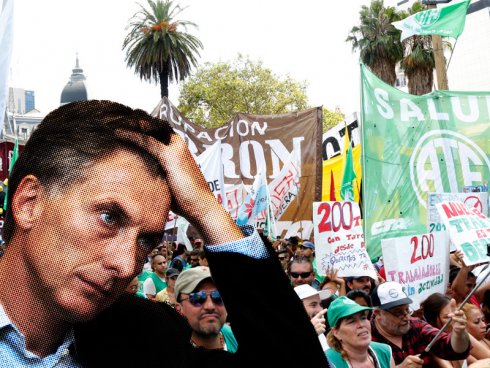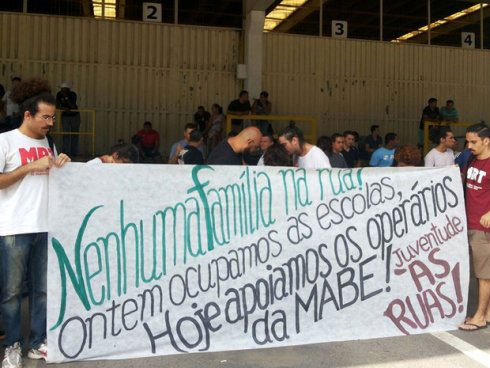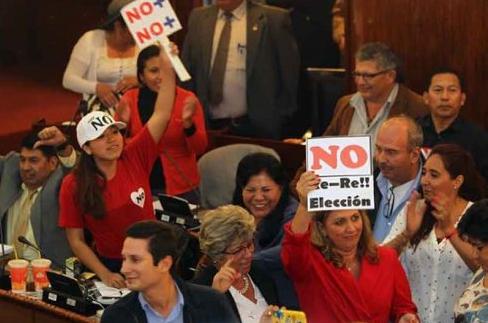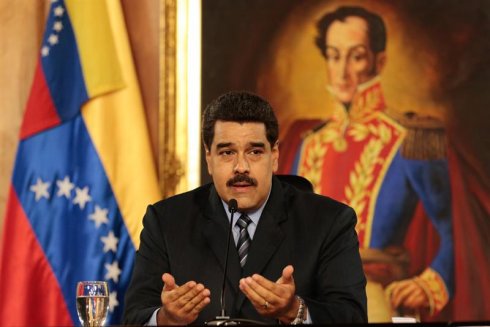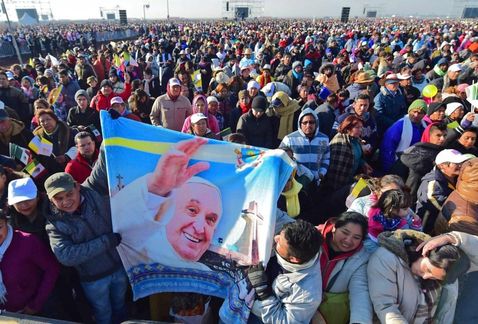Egypt
Stop the massacre! Down with the coup by the army!
23/08/2013
August 22, 2013
Savage massacres, in which around 1,000 deaths are estimated in the removal of the camps of militants of the Muslim Brotherhood (MB), the mass arrest of leaders and members of that organization, repression of strikes, like that at Suez Steel, and the imposition of the "state of emergency," make the profoundly reactionary character of the civilian-military government that emerged from the July 3 coup, perfectly clear. As if something were lacking, the Egyptian legal system might release former dictator Mubarak. Although it took office promising elections in six months, the government is resorting to counter-revolutionary methods to restore military control over the situation.
Although the Chief Justice of the Supreme Court (Adli Mansour) heads the government, and it includes civilian figures, its "strongman" is General al-Sisi (commanding officer of the army and Minister of Defense). It is virtually a "puppet government" of the soldiers, imposed with the collaboration of bourgeois liberal and reformist groups, relying on the broad popular repudiation of deposed President Morsi. This was a "government of diversion," that emerged from elections and was supported by the agreements between the MB and the army (with the approval of imperialism). It has kept the repressive apparatus and has tried to impose a neoliberal and pro-imperialist plan, under an Islamizing Constitution, that attacked the democratic freedoms achieved in the overthrow of Mubarak’s dictatorship, and it has attempted to assume full powers, which created an extremely broad process of popular mobilizations that threatened to overthrow it through a revolution.
The July 3 coup sought to expropriate that mobilization of the masses politically and impose a reactionary solution to the acute political crisis. When the attempt to include the Muslim Brotherhood in this plan failed, since they were demanding the reinstatement of Morsi, the new government launched a fierce escalation of repression, accentuating its Bonapartist features.
Although among big groups of the population there is a certain credence in the soldiers and their promises, their brutal repressive measures are creating a high political cost, that weakens the legitimacy of the new government and bares the contradictions and limits that it confronts. It remains to be seen whether a "roadmap" will be established towards new conditional elections and a reactionary Constitution, "touched up" to limit Islamist influence and guarantee the fundamental positions of the Egyptian big bourgeoisie, of the army and imperialism, or if it assumes more openly dictatorial characteristics.
Imperialism let the coup proceed and is refusing to define it as such, by supporting the soldiers, its allies and key agents in Egypt. However, it has begun to test some tepid gestures of pressure, like suspension of the sale of arms by the European Union or the delay in delivering military aid by the US, to point the way they hope the government in Cairo will follow, in a convulsive situation, where if they go too far away from the relationship of forces, new sudden, violent entrances by the masses could be detonated. On the regional level, the military government has the support of the reactionary monarchy of Saudi Arabia, that, with its tanks, crushed the uprising in Bahrain and is acting to liquidate the process of the "Arab Spring," and of the State of Israel, that sees in the fall of the MB, an opportunity to weaken Hamas.
Liberals and nationalists joined the coup and covered up for the soldiers and their plan. Although some, like el Baradei, who resigned as Vice President and went into exile in Switzerland, have distanced themselves, in order to remain as possible political replacements in the future, their terrible role in collaboration with the soldiers and imperialism is unchanged.
Unfortunately, a large part of the leaderships with influence among groups of youth at the forefront, also backed the coup, under the mistaken viewpoint that, given that the Islamists are reactionary, there is no other solution than supporting the "secular" variant of transition that Mansour and al-Sisi would now represent. Thus, the Tamarod ("Rebellion") movement, that encouraged the campaign against Morsi, supports the soldiers, justifying their repression of the Islamists as "terrorists," while Abu Aita, former President of the Federation of Independent Unions, took office as the Minister of Labor, calling for curbing the strikes.
Despite the reactionary measures of the government, the revolutionary process has not been defeated and remains open, nurtured by the economic crisis and the profound aspirations of the masses, that have been having a big political experience. The interests of the working class and the impoverished masses are colliding with those of the military, that is arrogating to itself the role of national arbiter, controls a third of the economy, and is closely bound to the current "model" of exploitation and the accords with imperialism, which creates a setting of confrontations between the workers and the "civilian-military" government.
Starting with the denunciation of the massacres and of the repression by the army and its civilian accomplices, but without putting any trust in the MB, that already displayed its reactionary character when it was in power, it is necessary to develop the independent mobilization of the workers, the young people and the groups of the poor, in order to overthrow the pro-coup government and impose a revolutionary Constituent Assembly, that is, one truly free and sovereign, on the ruins of the regime, guaranteed with a provisional government of the organizations of the workers and masses that will lead the struggle.
Translated by Yosef M.

